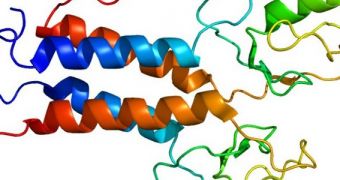A group of investigators with the School of Public Health at the University of Maryland determined in a new study that a gene associated with higher chances of developing breast cancer also appears to play a role in preventing the development of diabetes and obesity as well. The gene in question has been designated BRCA1, or breast cancer 1, early onset.
Over the past few years, oncologists have determined that BRCA1 is one of the main markers to look out for when assessing breast cancer susceptibility in female patients. What researchers discovered in the new study is that this gene plays a role in the normal metabolic function of skeletal muscles, too.
While analyzing this critical gene, researchers led by associate professor of kinesiology Dr. Espen Spangenburg determined that the protein BRCA1 codes for is expressed in skeletal muscles, in both mice and humans. The molecule was found to play a role in controlling cellular fat storage, mitochondrial function, and response to insulin.
What this discovery suggests is that metabolic diseases may find it harder to develop in people who have certain variants of this gene. Details of the research appear in the latest issue of the Journal of Lipid Research. Experts from the University of Maryland School of Medicine, the Brigham Young University, Karolinska Institutet in Sweden, and East Carolina University contributed to the study.
“Our findings suggest that certain mutations in the BRCA1 gene may put people at increased risk for metabolic diseases like obesity and type 2 diabetes. Without BRCA1, muscle cells store excess fat and start to look diabetic. We believe that the significance of the BRCA1 gene goes well beyond breast cancer risk,” Dr. Spangenburg explains.
He adds that this research represents the first time when the gene was found to be expressed in human muscle cells. BRCA1 has been under extensive research since it was first discovered, back in 1994. The BRCA1 protein was also found to interact with Acetyl-CoA carboxylase (ACC), a protein that controls fat metabolism in muscle cells. BRCA1 turns off ACC when the two come in contact.
In an experiment the team conducted, shRNA manipulation was used to shut down the breast cancer gene. As soon as it was knocked off, the muscle fiber cells began looking diseases, displaying increased oxidative stress, decreased insulin signaling patterns, increased lipid storage and reduced mitochondrial function, the team explains.
“Our findings make it clear that BRCA1 plays a protective role against the development of metabolic disease. This gene needs to be there, and should be considered a target to consider in the treatment of type 2 diabetes and/or obesity,” Dr. Spangenburg concludes.

 14 DAY TRIAL //
14 DAY TRIAL //